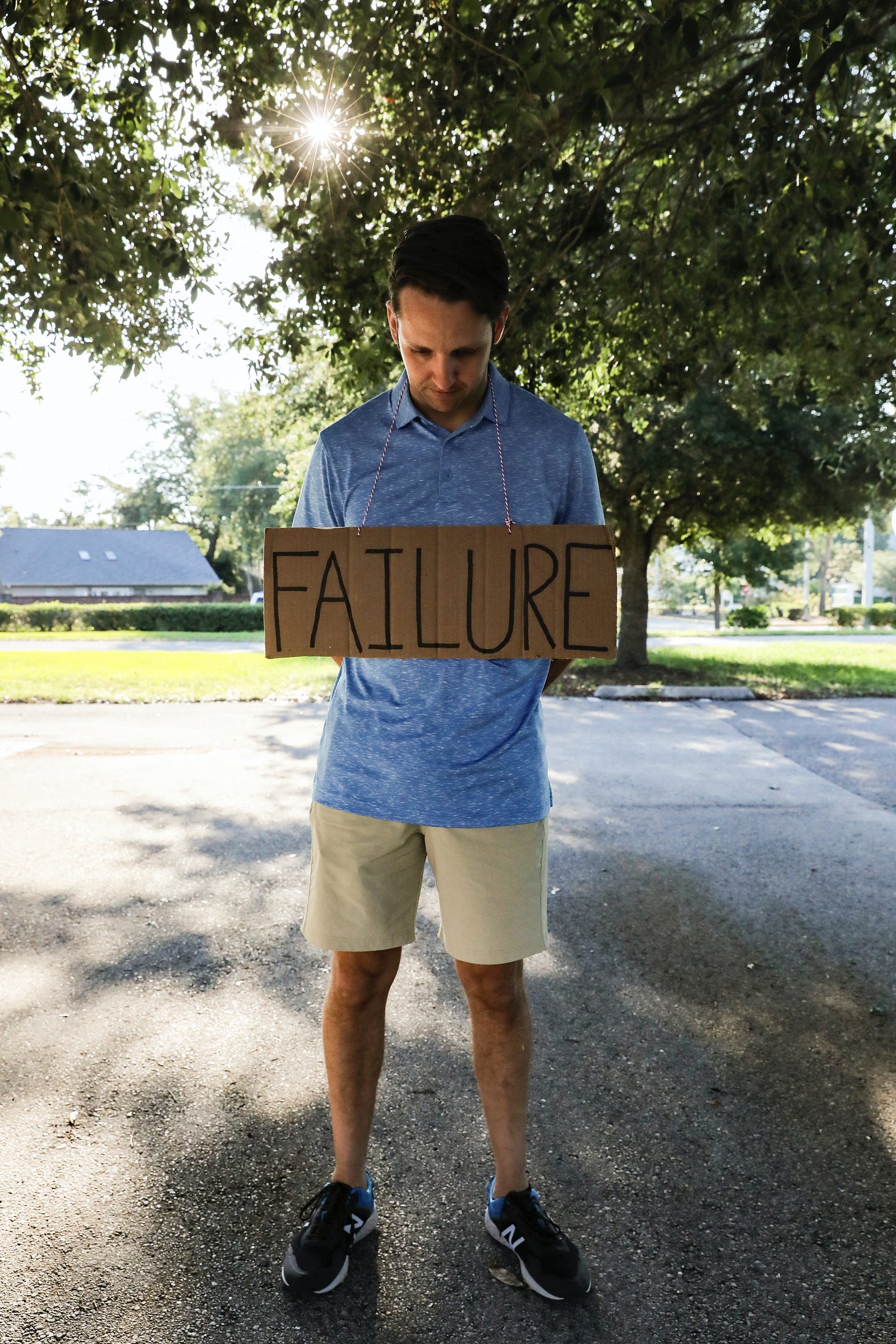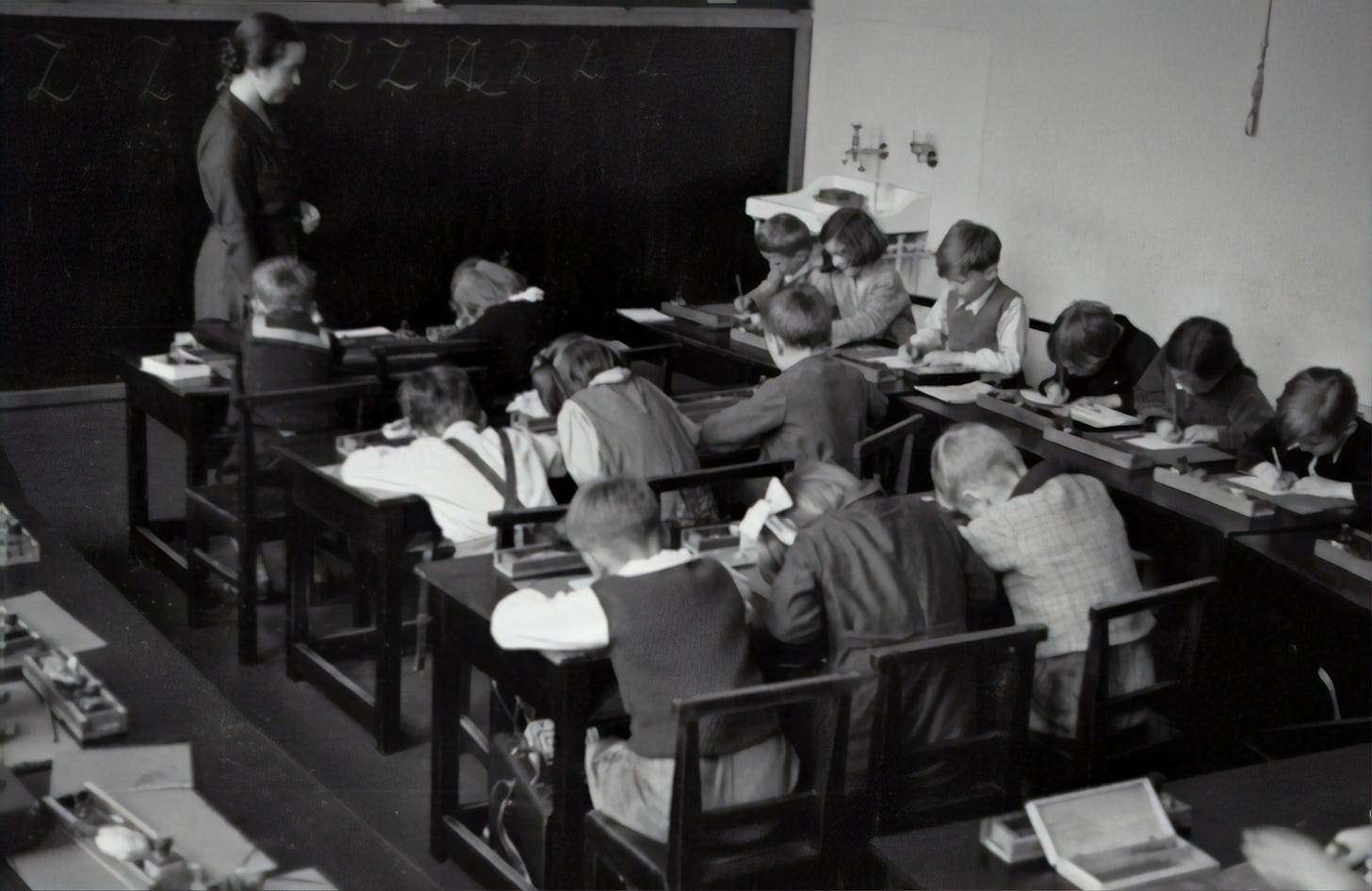Workplace Bullying, Shame & the New Zealand Education System
In February 2016 I posted this article on my Linkedin profile. Banned from Linkedin for two years now, it seems a good idea to revise and republish it...
Back in 2016 (when I knew that academia was broken, but didn’t realise just how much), I published this journal article about how the emotion of shame is used and abused as a social tool in UK education systems. For example, I explained how teaching staff perceive they are forced to perform requirements of arbitrary neoliberal policies that seek to measure the unmeasurable. Hindsight is a wonderful thing. In the two years between writing this piece and it eventually getting published (peer-review is often so painfully slow), I changed my perspective - partly because of my new context - ‘living’ the New Zealand education system. Now, in this dystopian covid era, reflecting on this aspect of my past research brings additional new meanings to it.
Studying the publications of the UK ‘Nudge Unit’ and similar covid psyops has also deepened my understanding (and disgust) of the propaganda playbook of corporate captured governments. This has been going on for a long, long time!
As I have argued many times before in my publications, the SocResOnline article specifies how definitions of 'good' teaching and 'best practice' are highly politicized in UK schools and colleges. Back in 2014, this politicization of teaching and learning was arguably less obvious (or maybe deliberately suppressed and ignored?) in universities. But even then, the controversial Tertiary Education Framework (TEF) policies for teaching quality assessments in Higher Education (HE) were imminent. In view of past experiences, it seemed inevitable these changes would be a top-down, bureaucratic system, rather than one led by those experienced and at the front line of HE teaching. Now, The Office for Students, which operates the TEF, provides ‘guidance’ for students wanting to make sense of the ‘Gold, Silver, Bronze or ‘requires improvement’’ fake rankings of the UK universities. And of course, the higher the institutional ‘ranking’ the higher the associated student fees charged. ‘Playing the game’ has become highly profitable for those universities who are willing and able. Little wonder those at the top echelons are not educationalists, but highly-paid economists and accountants.
The mechanisms of the game
As Smyth explains so comprehensively in his 2017 book, the phrases ‘quality teaching’ and ‘best practice’ often go unchallenged, which is bewildering in an intellectual context historically designed for exactly this purpose? In fact Poole would be pleased to dissect this Unspeak. And these policies come alongside constantly moving goalposts from government agencies like (in the UK) Ofsted, and ‘Advance HE’ (which was formed in March 2018 by the merger of the Equality Challenge Unit, the Higher Education Academy and the Leadership Foundation for Higher Education) which embody the new ideology of commercialization creating ongoing pressures for teachers in every sector.
Ask anyone about a memorable teacher from their schooldays or what they may have learned since and the response confirms what we all instinctively know:
Teaching and learning are intrinsically complex, emotional experiences and individuals' views of delivery, success and achievements are diverse and change over time.
Tensions between the perspectives of teachers and learners who recognise these complexities and the needs of various stakeholders seeking accountability for quantitative outcomes, inevitably results in bullying behaviours between and within hierarchies in institutions, sometimes with devastating consequences (Adams, 2015). So on an individual basis, it is the emotion of shame that is used to manipulate emotions that distort the senses, over-emphasising potential inadequacies, lowering self-esteem. It’s summed-up in that nagging feeling we all experience at some point in our careers:
“ I’m not good enough.”
Photo by Mick Haupt on Unsplash
Originally, I didn’t conceptualise the outcomes of my research as explicitly as bullying (perhaps I should have). But as I said, the toxic workplaces in New Zealand makes sociological investigations into these connections crucial, especially now with medical caselaw for Human Rights abuses in NZ hanging precariously in the balance.
What IS workplace bullying?
Tehrani (2012) pointed out how workplace bullying is defined as either actual or threatened attacks (physical, verbal or emotional), back-stabbing or undermining. Similarly, outlining the global context of the numerous (and growing) incidents and examples of workplace bullying in educational institutions, Lewis (2004) asserted that bullying is “systematic mistreatment” (p 282) of individuals in the form of ‘persistent insults, criticism or ridicule; being ignored or treated as non-existent; given demeaning tasks; being set-up to fail; enduring arbitrary removal of responsibilities or given unrealistic work demands.’ (2004 p 283).
Even when unsubstantiated, emotions associated with being a victim of bullying are immensely damaging to professional identities and personal well-being. Indeed, it’s well-known that there is substantial clinical evidence supporting the co-relation between bullying and depression, anxiety and suicide. Something that WorksafeNZ - the Government body tasked with overseeing Health and Safety Work legislation here - apparently seems to have forgotten.
Photo by Noah Silliman on Unsplash
But this aside, bullying is linked to feelings of shame, it subtly demeans (in psychoanalytical terms) the Self and leads to avoidance and silence (Mollon, 2002). That’s why the behavioural impact of shame is often described in a withdrawal or covering of the body; the removal of the self from the social space or the ‘publicly identified other’ (Garfinkel, 1956).
Phrases such as “I could have sunk to the floor” and “I wanted the earth to open-up and swallow me” (Garfinkel 1956:421) resonate with bullying victims’ comments about wanting to ‘disappear’ from view.
Shame is described as a sense of rejection of further contact with the social world in feelings of disgust of the Self. From a traditional psychoanalytic perspective, rejection is a result of attempts at protecting the Ego from further pain and anxiety; this makes shame unique in that it is cyclical - an emotion experienced alone and in an individual’s own time. This is partly why it is argued to be a such a powerful tool in processes of social control (Scheff, 2003).
And of course that is exactly why it was a tool used by governments worldwide, intent upon implementing their totalitarian lockdowns and vaccine mandates, as seen in these UK posters:
Bullying and Tall Poppy Syndrome
There’s a unique cultural phenomenon in Australasia, that is closely linked to workplace bullying: Tall Poppy Syndrome (TPS). Absent from common language elsewhere (although not absent completely), TPS is defined within the New Zealand Oxford Dictionary as the act of “denigrating or ‘cutting down’ those who are conspicuously successful or who are high achievers” (Deverson, 1998, p. 833). This obviously presents a stark contrast to the UK situation I described at the beginning of this article, where the government rhetoric of ‘continuous improvement’ can lead to unrealistic expectations of higher (and higher yet) achievement from staff and students.
Interestingly, in a study about entrepreneurs in New Zealand, Kirkwood & Viitanen (2015) note how some individuals or professions (such as sports personalities) manage to avoid enduring others’ resentment (whether it's articulated or enacted - or not). This is accomplished through statements or behaviour which play-down the individual’s achievements or dismisses any recognition of them.
Photo by Larisa Birta on Unsplash
A few years ago, a memorable example of this was seen from a team member of the New Zealand All Blacks, Sonny Bill Williams. After winning the 2015 Rugby World Cup, he gave away the gold medal he had been awarded just moments before, to a young boy from the crowd. Apparently the boy had been the victim of an ‘overzealous’ security guard who had knocked him to the ground whilst trying to prevent him from gaining access to the pitch. Sonny’s generous gift to his unknown fan (whom he said afterwards he admired for ‘taking a risk’ by jumping the barrier) was applauded as typical of the apparently ‘humble’ nature of these world-famous sports stars. Even if subconscious, this celebrity’s apparently unpretentious act (which the sceptic in me suspects may have been strategically staged for MSM) could be interpreted as symbolic of a coping mechanism that enables survival in a toxic work environment.
Why is it that New Zealand is so often a place where success is frowned upon, and high performers are resented? What has the impact been of shaming and bullying innocent people, on our economy and public health?
Exploring this TPS phenomenon within an educational context presents some (equally) serious concerns. For instance, from an historical UK perspective, it could be argued that students and teachers during the 1800’s were evaluated on their values and work ethic. They were judged as 'worthy' of education only if they could be relied upon to uphold social cohesion and social control. So, were these mechanisms of regulation?
“stick to the rules!” Photo by Austrian National Library
In contrast to this, those who were defined with ‘cleverness’ (rather than humble ‘goodness’) were considered impulsive and ‘worms of social discontent’ (Grace, 1985, p. 115). Maybe in terms of today’s propaganda, they’d be labelled ‘conspiracy theorists’ or ‘far right extremists?! In this way, non-compliance with, and dissent from Government policies were suppressed. Bearing in mind the era of European Settlers to New Zealand, perhaps this is where the TPS phenomenon has its roots?
But regardless of the context in which I live, it is inevitable that because of my interest in emotional labour, my sociocultural background and other aspects of my professional identity, I respect and admire those academics, teachers and other educationalists who go above and beyond. Freedom Fighters now have a special status in that ‘high achievers’ category. And indeed, my own teaching ethos is firmly based on high expectations of myself and my students. This is a crucial element of critical thinking skills.
Even worse, TPS has become a ‘sport’ in itself, sometimes forcing anyone ‘successful’ to endure bullying and harassment without support from others (Peeters, 2004). The more I investigate this topic, the more I realise how the ‘cutting down’ of ‘tall poppies’ by those who may be insecure at others’ success in New Zealand’s schools, colleges and universities, is common. This is a symptom of a particularly broken academic system where image goes before ethics. This maybe the reason why over ten years ago, MacLauchlan argued how New Zealand’s anti-intellectualism is normalised behaviour, in public and private sectors. Isolated geographically and intellectually, never has NZs shallow foundations been more obvious than in the last three years, where scientific data was ignored and experts silenced.
As Blogger Keith Johnson pointed out, Famous Kiwi Booker-prizewinner, writer Eleanor Catton explained how she needed resilience in order to overcome some ‘vicious attacks’ fired at her for her successes. Hence New Zealanders should be concerned that in a knowledge society, TPS was already restricting the economy in ways uninvestigated (Kirkwood & Viitanen, 2015). The global economic recession will only exacerbate these deep-rooted problems because if TPS effectively ensures a stigma is attached to individuals who embrace success, ostracises and excludes them, how can NZ society be sustainable? Unbelievably, NZ unis continue to be in denial of the obvious reality, obsessed with their branding, rather than teaching quality, despite student enrollments dropping of a cliff and redundancies rolling out. In a knowledge society, success drives marketisation and meritocracy, but in NZ success is restricted and dismissed. Do we have the worst of both worlds - no free market and no meritocracy - but now no democracy either?
In the context of my own educational research, in seeking to explore teaching quality assurance systems, teachers' can’t be reflective, develop and succeed in this toxic sociocultural backdrop. Quality education can’t improve in an arena where ‘good teaching’ isn’t recognised or even acknowledged, instead it is ‘stamped out’ for fear of this leading to insecure, underqualified others facing competency measures. Little surprise how anecdotally, recent months have seen ‘high achievers’ increasingly leaving NZ, especially when their home country celebrates and rewards hard-work and success.
Until this covid era, studies into bullying and TPS were sparse. Maybe this was because NZ was in denial about the extent of the problems. There are difficulties of generalisations, but certainly initial investigations of the concept of shame and its connections with bullying in the New Zealand workplace deserves further research. Now more than ever. In the past, focusing more on high achievers, Spacey (2015) reflects upon arguably a more accurate term for TPS; ‘crab mentality’ - presenting empirical evidence of student competence, classroom dynamics and the impact of this behaviour upon interactions between staff in a New Zealand university. Similarly, Mouly & Sankaran (2002) highlighted through a case-study how staff in a New Zealand academic institution were prevented from achieving a promotion because of their ‘above-average’ achievements in teaching and research outputs. With no signs of policies that encourage ‘continuous improvement’, no meaningful discussion of what that might look like in HE, and no acknowledgement of the significant increase in bullying behaviours in NZ education sectors, the outlook doesn’t look bright.
And now we have the added pressures on our health and education systems of discriminatory policies based on ethnicity in an undemocratic ‘decolonising agenda’ with ideology-driven curricula. (more on this another day)
Finally, in returning to New Zealand journalist Mclauchlan’s book, his reference to New Zealand as a nation of ‘passionless people’ may provide some clues as to the culture change that is needed, when we consider suggestions to eradicate workplace bullying in New Zealand:
…compassion to others and compassion to oneself are promising avenues for reducing shame, social isolation and suicide among victims of bullying and abuse. A social ethic of compassion might just help reduce bullying in the first place.
Useful reading on this topic:
Adams, R. (2015, November 20). Headteacher killed herself after Ofsted downgrade, inquest hears. The Guardian. Retrieved from http://www.theguardian.com/uk-news/2015/nov/20/headteacher-killed-herself-after-ofsted-downgrade-inquest
Garfinkel, H. (1956). Conditions of Successful Degradation Ceremonies. The American Journal of Sociology, 61(5), 420–424.
Grace, G. (1985). Judging Teachers: the social and political contexts of teacher evaluation. In L. Barton & S. Walker (Eds.), Education & Social Change (pp. 111–133). London: Croom Helm.
Johnson, E. (2013, April 16). Shame creates cruel irony of bullying -. Winnipeg Free Press. Canada.
Kirkwood, J., & Viitanen, T. (2015). Tall Poppy Syndrome and its effects upon entrepreneurs (Research Report). New Zealand: University of Otago. https://www.researchgate.net/publication/269637938_Tall_Poppy_Syndrome_Implications_for_entrepreneurship_in_New_Zealand
Lewis, D. (2004). Bullying at work: the impact of shame among university and college lecturers. British Journal of Guidance and Counselling, 32(2), 281–299. http://doi.org/10.1080/030698804100001723521
MacLauchlan, G. (2012). The Passionless People Revisited: New Zealanders in the 21st Century. Auckland, New Zealand: David Bateman Ltd.
Mollon, P. (2002). Shame and Jealousy: the hidden turmoils. London: Karnac.
Mouly, S., & Sankaran, J. (2002). The Enactment of Envy Within Organisations. Journal of Applied Behavioural Science, 38(1), 36–56.
Peeters, B. (2004). ‘“Thou shalt not be a tall poppy”’: Describing an Australian communicative (and behavioral) norm. Intercultural Pragmatics, 1, 71–92.
Spacey, S. (2015). Crab Mentality, Cyberbullying and ‘Name and Shame’ Rankings. Retrieved from http://srl.to/u5e2dNha Published Version available here












Remember Dr X, the dr who went to the media about the bullying from management. She was a dr from Dunedin hospital and said that her and many other drs were at times suicidal. Shame was used against them by management so they would do more shifts even though they were burnt out. Nothing will have been done about this and I think of what has now happened to this dr.
In my experience, shame and bullying are built into the health system in order to achieve the outcome the health authorities want. Not the outcome that is reality.
Wow! So LinkedIn banned you all the way back in 2016 for sharing this paper??!